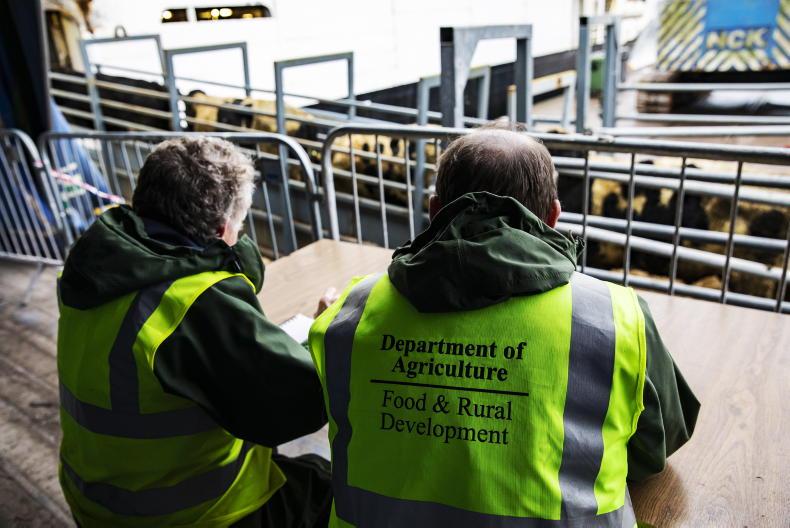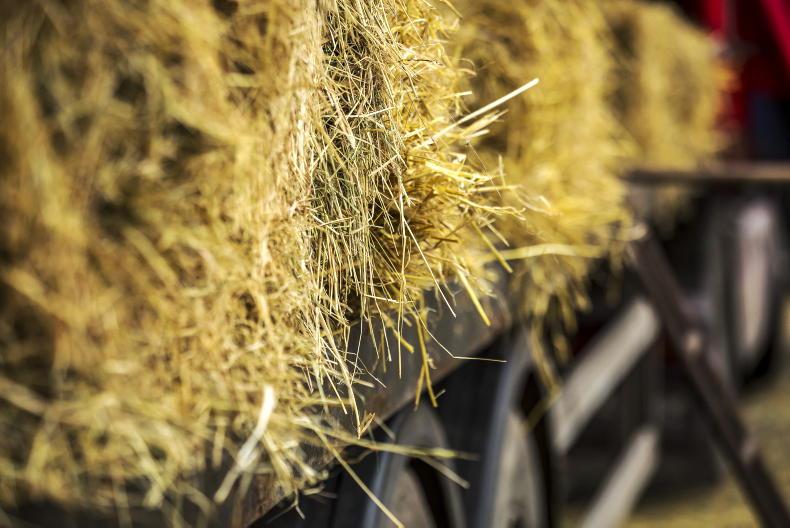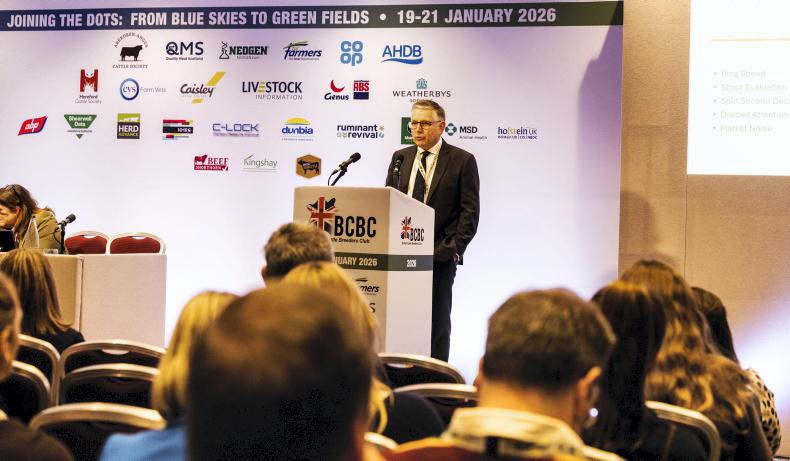The Department of Agriculture has detailed new charges for agricultural goods and livestock coming from the UK into Ireland through a border control post from 1 January 2021.
The fees will apply to all imports of live animals, products of animal origin, germinal and plant goods coming from the UK.
Import charges will be broadly similar for livestock and agri goods entering the UK. The charges will be regulated at local authority level, so may vary between inspection points.
The exporter will be liable to cover the import cost. Take the example of a farmer in the Republic of Ireland importing 6t of livestock from England, the English exporter will be required to cover the EU €55 import fee.
Likewise, Irish exporters will be required to pay the UK charge.
Rates
Importers will have to pay a fixed rate of €55 per consignment weighing up to 6t of live animals, meat and other products of animal origin imported from the UK.
For each extra tonne over 6t, it will cost €9 up to and including 46t. Consignments over 46t will have to pay a €420 charge.
Consignments of other products of animal origin and animal byproduct will receive a charge amounting to €600 per vessel, with cargo of products up to 500t.
For each additional 500t of cargo on board the vessel, an additional charge of €600 will be applied up to 2,000t. Consignments over 2,000t will cost €3,600.
Department invoices
All EU member states are required to collect fees for official controls carried out on consignments of animals and goods entering through a border control post, as per article 79 of regulation 2017/625 of the European Council and Parliament.
Fees in relation to animals and goods subject to emergency measures, will remain the same as 2020 rates.
The Department has said it will continue to issue invoices on a monthly basis, as has been the procedure before now.
Read more
EU to audit Ireland on vet medicine residues and food safety law
Inspections will see delays to live export at Irish ports - IRHA
‘85% of trucks leaving Rosslare for UK at risk of chaotic delays’
The Department of Agriculture has detailed new charges for agricultural goods and livestock coming from the UK into Ireland through a border control post from 1 January 2021.
The fees will apply to all imports of live animals, products of animal origin, germinal and plant goods coming from the UK.
Import charges will be broadly similar for livestock and agri goods entering the UK. The charges will be regulated at local authority level, so may vary between inspection points.
The exporter will be liable to cover the import cost. Take the example of a farmer in the Republic of Ireland importing 6t of livestock from England, the English exporter will be required to cover the EU €55 import fee.
Likewise, Irish exporters will be required to pay the UK charge.
Rates
Importers will have to pay a fixed rate of €55 per consignment weighing up to 6t of live animals, meat and other products of animal origin imported from the UK.
For each extra tonne over 6t, it will cost €9 up to and including 46t. Consignments over 46t will have to pay a €420 charge.
Consignments of other products of animal origin and animal byproduct will receive a charge amounting to €600 per vessel, with cargo of products up to 500t.
For each additional 500t of cargo on board the vessel, an additional charge of €600 will be applied up to 2,000t. Consignments over 2,000t will cost €3,600.
Department invoices
All EU member states are required to collect fees for official controls carried out on consignments of animals and goods entering through a border control post, as per article 79 of regulation 2017/625 of the European Council and Parliament.
Fees in relation to animals and goods subject to emergency measures, will remain the same as 2020 rates.
The Department has said it will continue to issue invoices on a monthly basis, as has been the procedure before now.
Read more
EU to audit Ireland on vet medicine residues and food safety law
Inspections will see delays to live export at Irish ports - IRHA
‘85% of trucks leaving Rosslare for UK at risk of chaotic delays’










SHARING OPTIONS